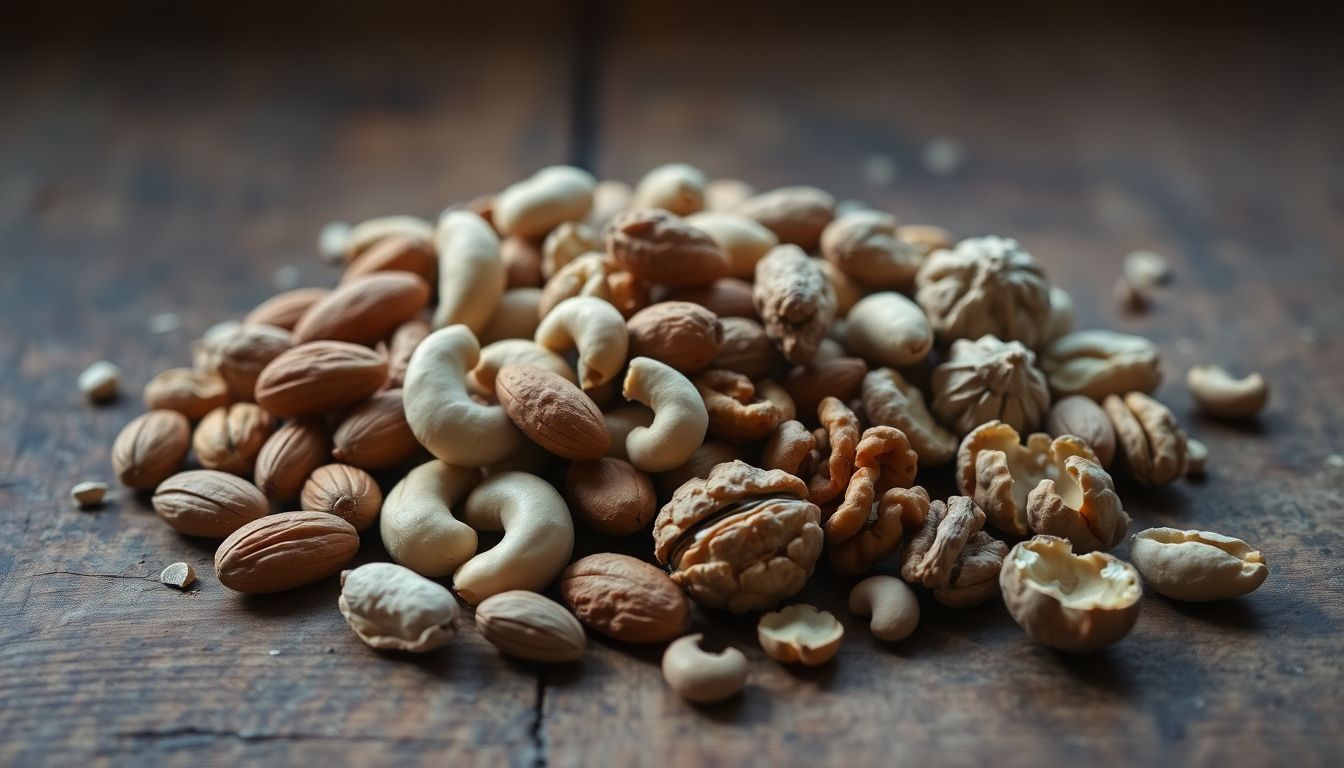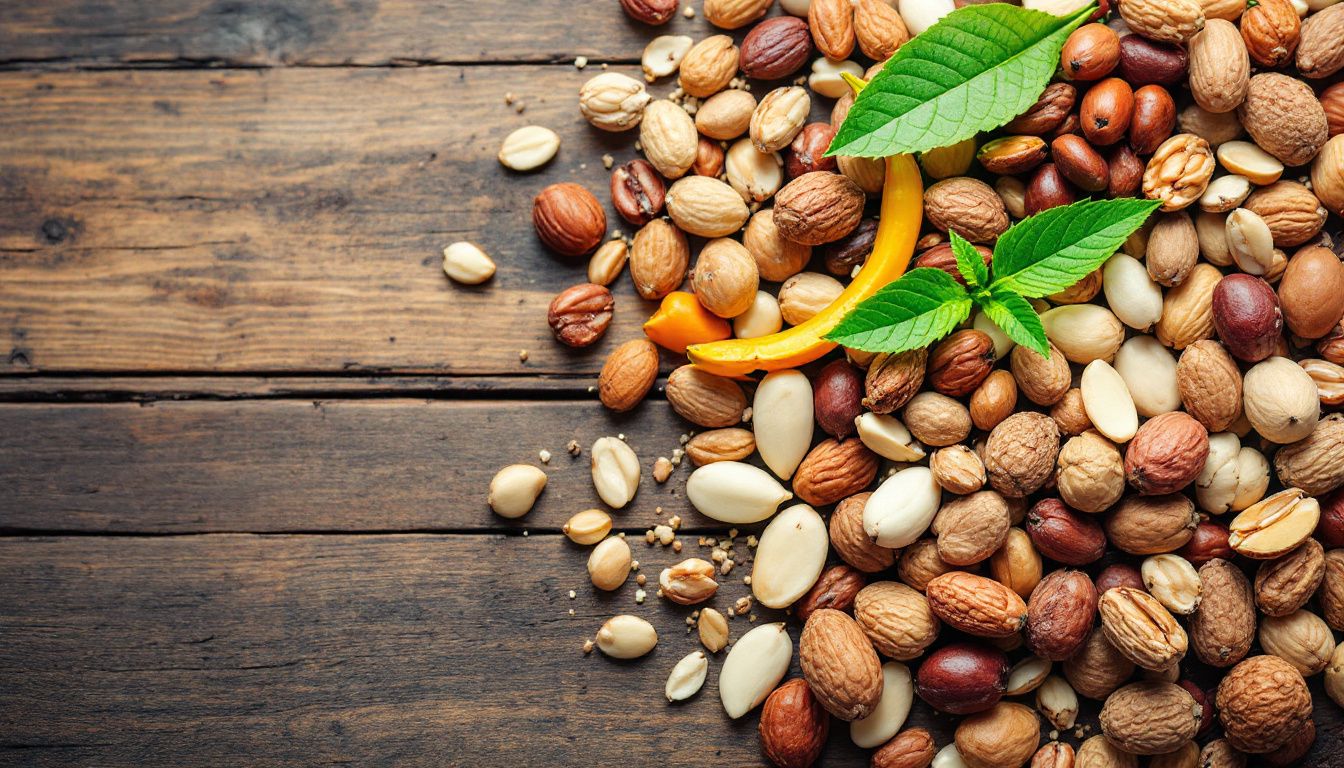Eating nuts can be confusing. They’re tasty, full of healthy fats, and great for heart health—but how much is too much? Studies show eating the right amount daily can lower LDL cholesterol and reduce the risk of heart disease.
Thank you for reading this post, don't forget to subscribe!This blog will help you find the perfect portion size to stay fit and healthy. Keep reading!
Key Takeaways
- Eat 30 grams (a handful) of nuts daily for best health benefits, like lower LDL cholesterol and reduced heart disease risk.
- Nuts are full of healthy fats, fiber, protein, and vitamins such as vitamin E and B vitamins.
- Avoid salted or roasted nuts with added oils to keep sodium and unhealthy fats low. Stick to raw or unsalted options for better nutrition.
- Overeating nuts can lead to weight gain due to high calorie content (185 calories per ounce). Too many Brazil nuts may cause selenium toxicity.
- Mix nuts like almonds, walnuts, or pistachios into meals or snacks while watching portion sizes to balance calorie intake.
Health Benefits of Eating Nuts

Nuts pack a punch of nutrients. They are rich in polyunsaturated fats, fiber, protein, and vitamins like vitamin E and B vitamins. These healthy fats help reduce LDL cholesterol by 3.75 mg/dL on average while boosting HDL levels—especially with hazelnuts, pistachios, and walnuts.
Tree nuts like almonds promote gut health by feeding good bacteria. Antioxidants in cashews and walnuts fight inflammation that may lower cancer risks. Daily nut consumption can cut heart disease risk by 27%.
A handful of raw or unsalted nuts supports blood pressure control too.
Recommended Daily Serving of Nuts for Maximum Benefits
Eating nuts daily can boost your health. Portion control is key to getting the most benefits without overeating.
- Eat about 30 grams of nuts per day, which equals one handful. Examples include 12 almonds, 7 walnut halves, or 24 pistachios.
- Stick to 1 ounce of nut butter if you prefer spreads. This is equal to about two tablespoons.
- Include a variety of nuts such as brazil nuts for selenium, walnuts for omega-3 fats, and almonds for vitamin E.
- Consuming 50–100 grams of nuts five days a week can lower LDL cholesterol and improve heart health.
- Avoid salted or roasted nuts with added oils to keep sodium and saturated fats low.
- Choose raw or unsalted options for better nutritional value while limiting calories in nuts.
- Use USDA MyPlate guidelines as a guide—small portions offer energy without leading to weight gain.
- Mix chia seeds, flax seeds, or sunflower seeds into meals for added fiber and healthy fats.
- Combine a small serving with vegetables or legumes for balanced nutrition in your diet.
- Follow moderation rules if using nut flour or nut butters in recipes to avoid calorie overload.
Potential Risks of Overeating Nuts
Overeating nuts can lead to weight gain. They pack about 185 calories per ounce, making portion size important for a healthy diet. High-calorie intake without balance may hinder weight-loss goals or cause obesity prevention efforts to fail.
Brazil nuts contain selenium—1 ounce provides 989% of the daily value. Too much selenium can cause toxicity, leading to hair loss, brittle nails, or even digestive issues like diarrhea.
Salted nuts increase sodium levels, risking high blood pressure and heart disease. Cashews have more saturated fat than other nuts and may trigger headaches or digestion problems in some people.
Learn how many are just enough in the next section!
Conclusion
Eating nuts in the right amount can boost your health. Stick to about 30 grams a day for maximum benefits without overloading on calories. Watch your portion sizes and enjoy them raw or unsalted for better nutrition.
Nuts support heart health, weight management, and more when eaten wisely. Always be mindful of allergies if they are a concern!
For more insight into balancing your diet, read our article on how much meat is too much from a doctor’s perspective.
References
- https://www.healthline.com/nutrition/8-benefits-of-nuts (2023-07-27)
- https://www.eatingwell.com/article/8027688/are-nuts-good-for-you/ (2025-01-26)
- https://www.mayoclinic.org/diseases-conditions/heart-disease/in-depth/nuts/art-20046635
- https://www.health.harvard.edu/nutrition/ask-the-doctor-healthy-nuts-how-much-should-i-eat
- https://www.uhhospitals.org/blog/articles/2023/01/can-you-overdose-on-nuts (2023-01-25)
